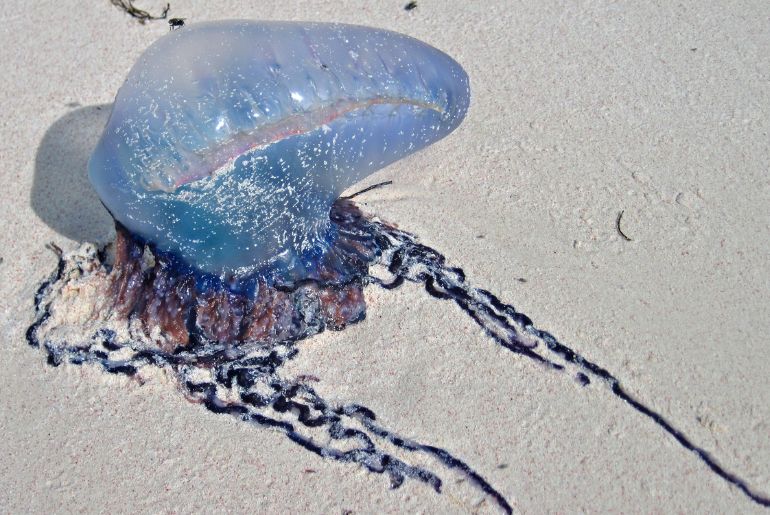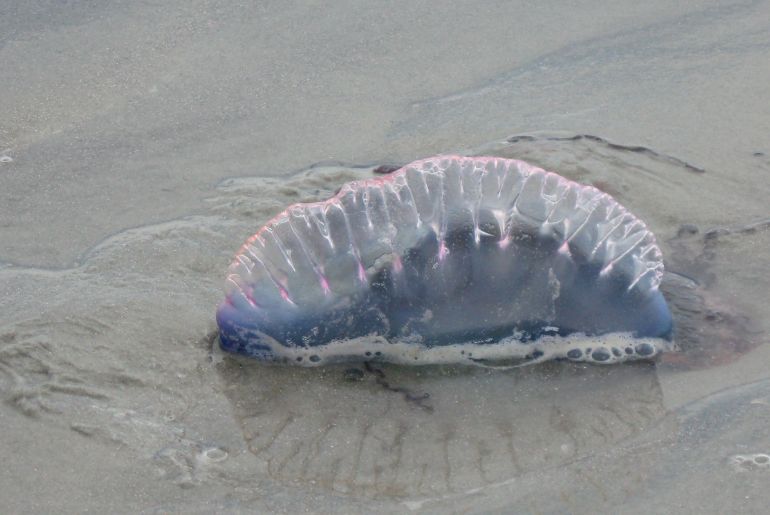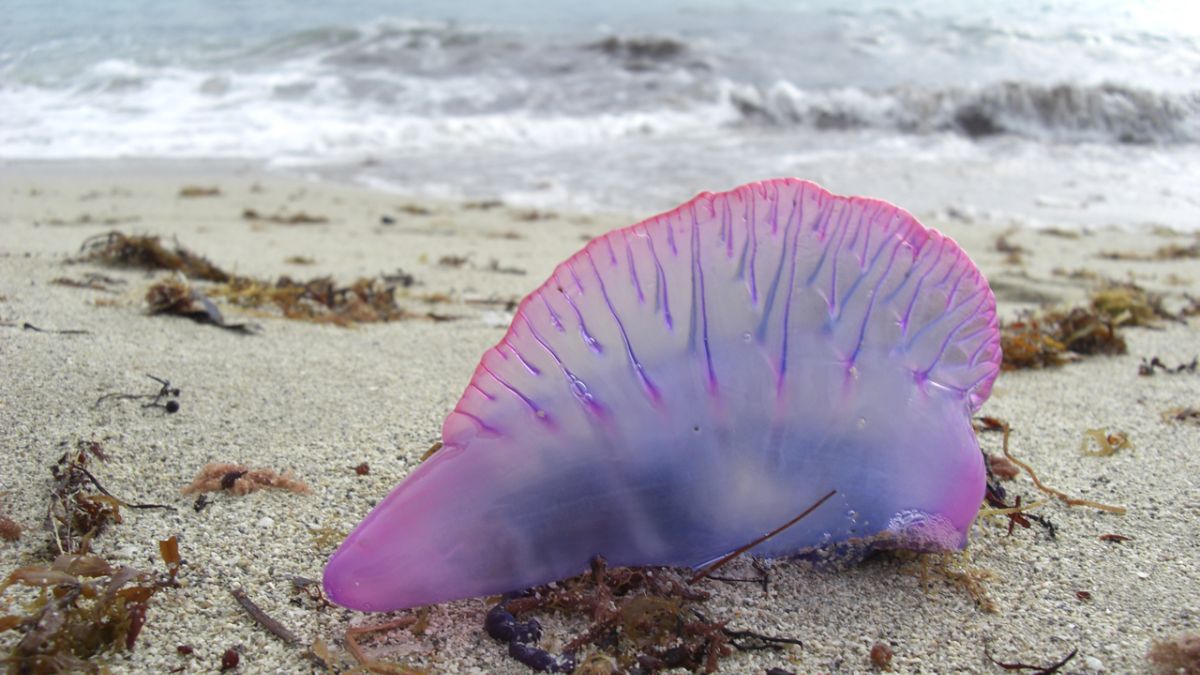Wembury residents have issued a warning to visitors not to approach a water animal known as a “fearsome predator”. This dangerous predator, identified as the Portuguese Man O’War, poses a threat to humans. It is believed that they can still sting painfully even after they have died. What is this creature? Why is it termed dangerous and how you can spot one, all inside.
Portuguese Man O’War Spotted On UK Beach

Local kayaker Samantha Barnes discovered the Portuguese Man O’War on August 23, which is sometimes mistaken for a jellyfish. Numerous people had observed them washing up on the shore during the previous few days, according to Wembury Marine Centre.
Even after they have passed away, their sting is still unpleasant. Portuguese Man O’War are occasionally discovered washed up on our coasts following westerly winds, according to the Wildlife Trusts.
Additionally, you might be surprised to learn that despite being an aquatic lifeform, they can’t swim and are therefore vulnerable to the wind, which explains why they are frequently discovered washed up. (As per The Mirror)
Also Read: Chandrayaan-3: World Leaders Congratulate India On Creating History; Heres What They Said
A Result Of Climate Change

Portuguese Man O’War have a huge, transparent purple float with a pink crest that makes them frequently difficult to overlook. The tentacles on them are also lengthy and bluish-violet.
Their float can frequently be observed bobbling on the water’s surface and occasionally becoming entangled in seaweed mats. After stranding, they swiftly lose their color and can eventually become translucent with just a hint of purple.
They are widespread throughout the UK. Westerly winds cause water to be blown to the southwest. Although they can be seen as far north as Cumbria, they are primarily observed in Cornwall and the Isles of Scilly.
An expert predicted earlier this year that as water temperatures increase near the UK, jellyfish will likely become a more prevalent sight on British beaches. According to Ruth Chamberlain, a marine researcher, sightings of the potentially dangerous Portuguese Man O’ War may be increasing as a result of climate change. (As per Plymouth LIVE)
Also Read: Washroom Or Palace? Netizens Cannot Stop Admiring This Lavish Washroom In Thailand
What are youre views?
Cover Image Courtesy: Canva
First Published: August 25, 2023 12:43 PM



